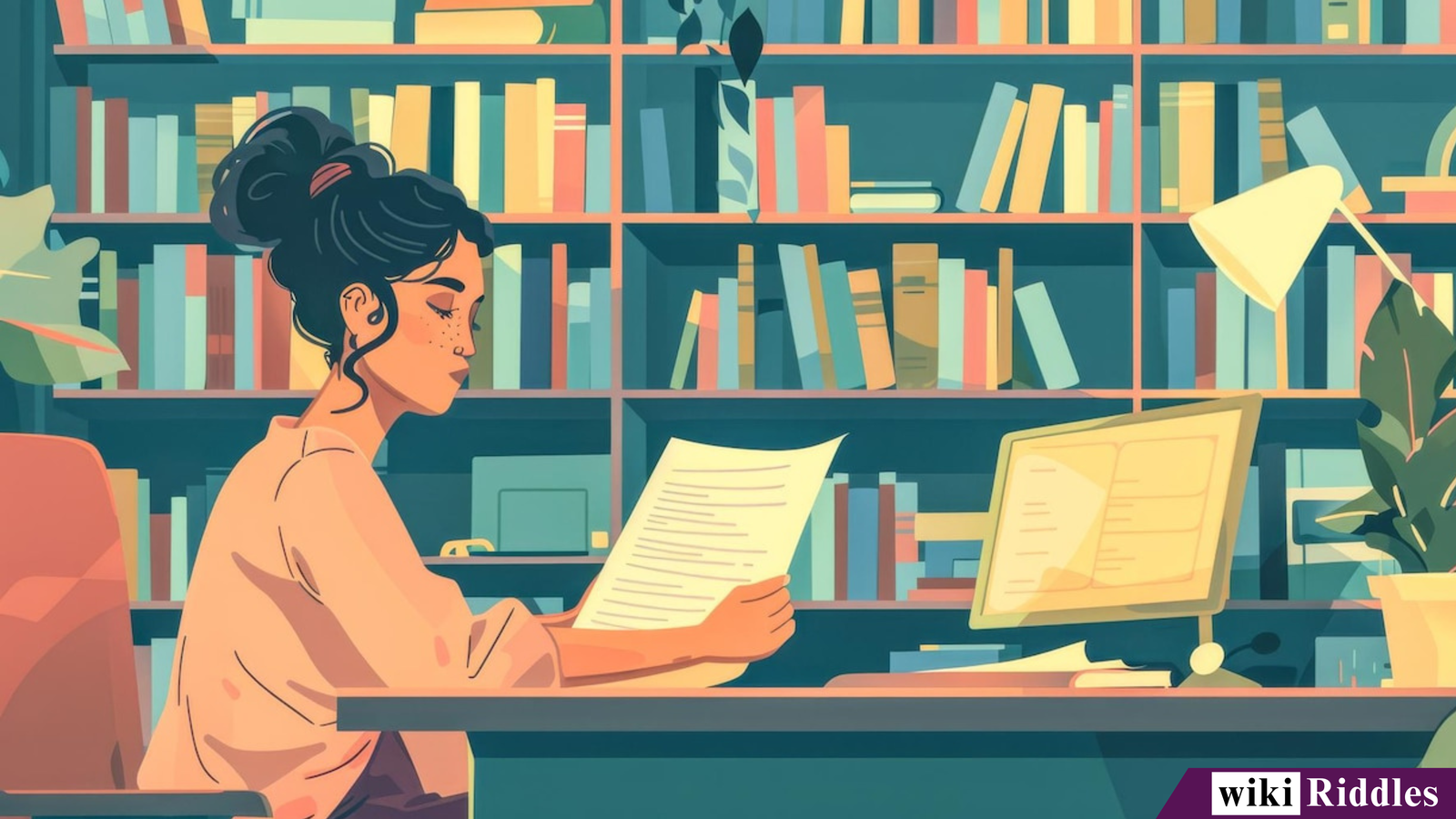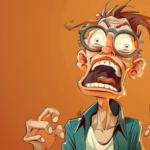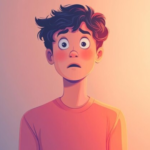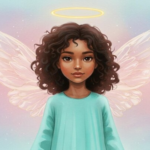Riddles have been around for centuries, tickling our brains and pushing us to think in creative and unexpected ways. They entertain us, challenge our logic, and give our minds a playful workout. Whether you’re gathered around a campfire, sitting in a classroom, or just scrolling through your phone, a good riddle can stop you in your tracks and make you think. One of the most popular and delightfully deceptive riddles is the one that asks, “What word is spelled wrong in the dictionary?” At first, it sounds like a mistake or a trick question. But the genius of this riddle lies in its simplicity, cleverness, and wordplay.
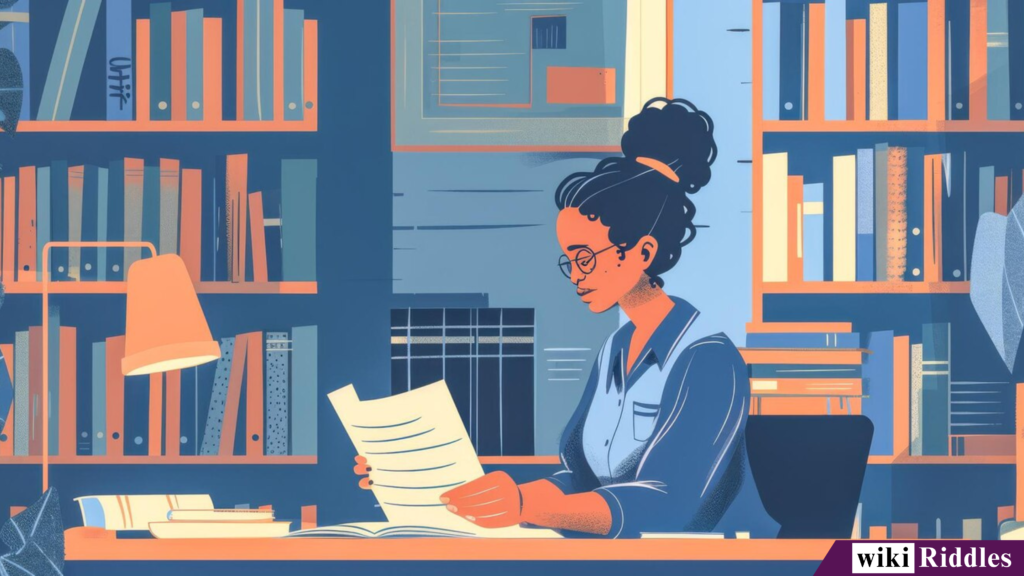
200+ “What Word Is Spelled Wrong In The Dictionary” Riddles with Answers
Literal Wordplay
- Riddle: What word in the dictionary is spelled “wrong”?
Answer: Wrong. - Riddle: I’m a word that literally means “not right” and yet I’m always correct in this riddle. What am I?
Answer: Wrong. - Riddle: Which word, when spelled correctly, is actually “wrong”?
Answer: Wrong. - Riddle: What’s the word that always contradicts its own spelling?
Answer: Wrong. - Riddle: I’m a word that means incorrect, but in this riddle, I’m the only right choice. What am I?
Answer: Wrong. - Riddle: Which word is defined as a mistake but isn’t one here?
Answer: Wrong. - Riddle: What word spells out an error, yet is the only correct answer?
Answer: Wrong. - Riddle: You’d say I’m incorrect, but if you do, you’d be correct. What word am I?
Answer: Wrong. - Riddle: Which word always appears as an example of itself in this type of riddle?
Answer: Wrong. - Riddle: What word is used to trick you, but tells you exactly what it is?
Answer: Wrong.
Self-Referential
- Riddle: What word is the answer to this very question?
Answer: Wrong. - Riddle: I’m the answer to a riddle about myself. What word am I?
Answer: Wrong. - Riddle: Which word spells out its own riddle’s punchline?
Answer: Wrong. - Riddle: I’m a word that appears in riddles and answers both. What am I?
Answer: Wrong. - Riddle: What word describes itself and its own definition?
Answer: Wrong. - Riddle: Which word you’re looking for is the one you just read?
Answer: Wrong. - Riddle: What’s the answer that’s always mentioned in the question?
Answer: Wrong. - Riddle: Which word proves it’s the right answer by saying it’s wrong?
Answer: Wrong. - Riddle: What’s the only word that knows it’s the answer?
Answer: Wrong. - Riddle: I am a riddle about me. What word am I?
Answer: Wrong.
Paradoxical Logic
- Riddle: What’s the only correct answer that says it’s incorrect?
Answer: Wrong. - Riddle: Which word is always wrong when it’s right and right when it’s wrong?
Answer: Wrong. - Riddle: What word is always incorrect unless you say it is?
Answer: Wrong. - Riddle: What answer can only be right by being wrong?
Answer: Wrong. - Riddle: If you say I’m wrong, you’re right. If you say I’m right, you’re wrong. What am I?
Answer: Wrong. - Riddle: What word is wrong when spelled right and right when spelled wrong?
Answer: Wrong. - Riddle: I’m wrong, but I’m always the right choice. What am I?
Answer: Wrong. - Riddle: What word disproves itself by proving itself?
Answer: Wrong. - Riddle: Which word always lies by telling the truth?
Answer: Wrong. - Riddle: What’s the only answer that creates a paradox just by existing?
Answer: Wrong.
Dictionary Humor
- Riddle: What word did the dictionary get wrong… on purpose?
Answer: Wrong. - Riddle: Which word is intentionally misspelled but still listed correctly?
Answer: Wrong. - Riddle: What word do dictionary editors laugh about because it’s spelled “right” as “wrong”?
Answer: Wrong. - Riddle: I’m listed in the dictionary as “wrong,” yet the spelling is spot on. What word am I?
Answer: Wrong. - Riddle: Which word’s entry in the dictionary is a joke in itself?
Answer: Wrong. - Riddle: What word makes you question whether the dictionary made a mistake — but didn’t?
Answer: Wrong. - Riddle: What word in the dictionary is a trap for overthinkers?
Answer: Wrong. - Riddle: Which word in the dictionary is both the answer and the joke?
Answer: Wrong. - Riddle: What’s the only word in the dictionary that everyone spells right by spelling wrong?
Answer: Wrong. - Riddle: Which word is a running gag among word nerds and lexicographers?
Answer: Wrong.
Misleading Grammar
- Riddle: What word sounds like a mistake but is grammatically perfect?
Answer: Wrong. - Riddle: Which word is never used correctly but is spelled correctly every time?
Answer: Wrong. - Riddle: I break the rules of grammar just by existing. What word am I?
Answer: Wrong. - Riddle: Which word is used to describe a wrong sentence — but is spelled right?
Answer: Wrong. - Riddle: What word is always labeled “incorrect” in use, even when it’s not?
Answer: Wrong. - Riddle: What’s the only word that never fits in the sentence but belongs in the dictionary?
Answer: Wrong. - Riddle: Which word causes grammar teachers to pause — even though it’s not incorrect?
Answer: Wrong. - Riddle: I defy sentence structure but I’m always the right answer. What am I?
Answer: Wrong. - Riddle: What word gets marked with a red pen — unless it’s this riddle?
Answer: Wrong. - Riddle: Which word is always out of place, but somehow always fits?
Answer: Wrong.
Visual Wordplay
- Riddle: What word looks like a mistake, but isn’t?
Answer: Wrong. - Riddle: I appear “off” when written, but I’m totally fine. What word am I?
Answer: Wrong. - Riddle: Which word tricks your eyes but not your brain?
Answer: Wrong. - Riddle: You see me and think “error” — but I’m exactly what I should be. What am I?
Answer: Wrong. - Riddle: What word looks out of place in a spelling test but is perfectly correct?
Answer: Wrong. - Riddle: What word might look like a typo but is fully intentional?
Answer: Wrong. - Riddle: Which word appears “misspelled” at a glance but isn’t?
Answer: Wrong. - Riddle: You’d think I don’t belong here, just by how I look. What word am I?
Answer: Wrong. - Riddle: What word fools your eyes into thinking it’s a mistake?
Answer: Wrong. - Riddle: Which word’s appearance makes it suspicious — even though it’s the answer?
Answer: Wrong.
Homophone Confusion
- Riddle: What word sounds right, but is actually “wrong”?
Answer: Wrong. - Riddle: Which word do you hear as incorrect, but it’s actually correct in this case?
Answer: Wrong. - Riddle: What word is always misheard as a mistake?
Answer: Wrong. - Riddle: I sound like a problem, but I’m really the solution. What am I?
Answer: Wrong. - Riddle: What word is mispronounced as a judgment — but is the actual answer?
Answer: Wrong. - Riddle: Which word confuses people by how it sounds, not how it’s spelled?
Answer: Wrong. - Riddle: What sounds like an error but is exactly what you need?
Answer: Wrong. - Riddle: You hear me and think “nope,” but I’m the right pick. What word am I?
Answer: Wrong. - Riddle: Which word, when spoken aloud, feels incorrect — until you solve the riddle?
Answer: Wrong. - Riddle: What word rings in your ears like a mistake — but reads like a clue?
Answer: Wrong.
Irony-Based
- Riddle: What word is always incorrect but somehow always the right answer?
Answer: Wrong. - Riddle: What word proves it’s right by claiming to be wrong?
Answer: Wrong. - Riddle: Which word is only correct when it says it isn’t?
Answer: Wrong. - Riddle: What word makes you feel like you’ve messed up even when you’ve nailed it?
Answer: Wrong. - Riddle: What word is a mistake that you’re supposed to make on purpose?
Answer: Wrong. - Riddle: Which word gives you the correct answer by saying it’s incorrect?
Answer: Wrong. - Riddle: What word is both an error and a solution at the same time?
Answer: Wrong. - Riddle: I exist to confuse you by being right when I say I’m wrong. What word am I?
Answer: Wrong. - Riddle: Which word feels like failure but is actually the win?
Answer: Wrong. - Riddle: What’s the only word that makes sense by not making sense?
Answer: Wrong.
Meta Riddles
- Riddle: What’s the answer to this riddle, which is also about this riddle?
Answer: Wrong. - Riddle: I’m the answer to a question that asks for me. What word am I?
Answer: Wrong. - Riddle: Which word answers itself just by being asked about?
Answer: Wrong. - Riddle: What word shows up in riddles about itself and wins every time?
Answer: Wrong. - Riddle: I’m the only answer that loops back into the question. What am I?
Answer: Wrong. - Riddle: What word exists just to be the answer to riddles about itself?
Answer: Wrong. - Riddle: What word becomes correct when the riddle says it isn’t?
Answer: Wrong. - Riddle: What answer do you already know because the question won’t let you forget it?
Answer: Wrong. - Riddle: What word is locked into riddles like this, over and over again?
Answer: Wrong. - Riddle: What’s the most self-aware answer to any riddle ever?
Answer: Wrong.
Trick Questions
- Riddle: What word is spelled “wrong” in every dictionary, and that’s exactly how it should be?
Answer: Wrong. - Riddle: You think I’m a mistake, but that’s what makes me right. What word am I?
Answer: Wrong. - Riddle: What answer seems like a setup but ends up being the real deal?
Answer: Wrong. - Riddle: I sound like a trap, but I’m exactly what you’re looking for. What am I?
Answer: Wrong. - Riddle: What word makes you second-guess everything, even though it’s the only right one?
Answer: Wrong. - Riddle: What word is the answer that feels like a mistake every time you say it?
Answer: Wrong. - Riddle: What answer looks suspicious but is completely intentional?
Answer: Wrong. - Riddle: I trick your logic but reward your intuition. What word am I?
Answer: Wrong. - Riddle: Which word feels like it should never be the answer… except when it is?
Answer: Wrong. - Riddle: What word flips the question on its head just by existing?
Answer: Wrong.
False Premise
- Riddle: What word is based on a mistake you’re supposed to make?
Answer: Wrong. - Riddle: Which word sounds like an error but is actually the correct solution to a false question?
Answer: Wrong. - Riddle: What word breaks the logic of the question and still solves it?
Answer: Wrong. - Riddle: I rely on you misunderstanding the question to get me right. What word am I?
Answer: Wrong. - Riddle: What word only works when you fall for the trick?
Answer: Wrong. - Riddle: Which word fixes a question that wasn’t really broken?
Answer: Wrong. - Riddle: I’m right only if you believe the question was wrong. What am I?
Answer: Wrong. - Riddle: What word answers a question that was designed to fool you?
Answer: Wrong. - Riddle: What word makes sense once you realize the question doesn’t?
Answer: Wrong. - Riddle: What word works perfectly when the question doesn’t?
Answer: Wrong.
Contronym Confusion
- Riddle: What word sounds wrong but turns out right — depending how you see it?
Answer: Wrong. - Riddle: Which word’s meaning contradicts how it’s used in this riddle?
Answer: Wrong. - Riddle: I mean what I don’t mean. What word am I?
Answer: Wrong. - Riddle: What word defines itself by being its opposite in this riddle?
Answer: Wrong. - Riddle: I describe error, but I am the correct answer. What word am I?
Answer: Wrong. - Riddle: Which word flips its meaning just by being the answer?
Answer: Wrong. - Riddle: What word says it’s not the answer, but that’s what makes it the answer?
Answer: Wrong. - Riddle: What word is both mistake and solution, depending on your perspective?
Answer: Wrong. - Riddle: Which word is incorrect by definition and correct by intention?
Answer: Wrong. - Riddle: What word can’t be trusted… except when you need it most?
Answer: Wrong.
Puns & Double Meanings
- Riddle: What word is spelled “wrong,” but that’s exactly what makes it right?
Answer: Wrong. - Riddle: I’m the answer to what’s wrong with the dictionary — literally. What word am I?
Answer: Wrong. - Riddle: You say I’m a mistake, but I say I’m pun-derful. What word am I?
Answer: Wrong. - Riddle: What’s the only word that’s not an error, even when it is?
Answer: Wrong. - Riddle: I’m right when I’m wrong, and wrong when I’m right. What am I?
Answer: Wrong. - Riddle: What word plays both sides and still wins the riddle?
Answer: Wrong. - Riddle: I’m the only mistake that gets full marks. What word am I?
Answer: Wrong. - Riddle: What word is a pun and a problem — but still correct?
Answer: Wrong. - Riddle: Which word has the double meaning of being wrong and right at once?
Answer: Wrong. - Riddle: What word makes you laugh and doubt yourself all in one breath?
Answer: Wrong.
Anagram-Based
- Riddle: Rearrange me and I’m still not right — but I’m still the answer. What word am I?
Answer: Wrong. - Riddle: My letters spell trouble, but I spell the answer. What word am I?
Answer: Wrong. - Riddle: I can’t be rearranged to mean right, but I’m still right here. What word am I?
Answer: Wrong. - Riddle: Unscramble me and I’m a mess — just like your thoughts after this riddle.
Answer: Wrong. - Riddle: What word has no good anagram, yet is still the solution?
Answer: Wrong. - Riddle: You can’t rearrange me into anything better. What word am I?
Answer: Wrong. - Riddle: Try flipping my letters. It won’t help. What’s the word?
Answer: Wrong. - Riddle: What word stays wrong no matter how you twist it?
Answer: Wrong. - Riddle: What word is a jumbled puzzle that never quite fits — except in this riddle?
Answer: Wrong. - Riddle: I’m no good scrambled or straight. Still, I’m the right answer. What am I?
Answer: Wrong.
Spelling Bee Sabotage
- Riddle: What word gets you eliminated even if you spell it right?
Answer: Wrong. - Riddle: You stand at the mic and spell “W-R-O-N-G.” What word did you just say?
Answer: Wrong. - Riddle: What word causes panic in a spelling bee — and for good reason?
Answer: Wrong. - Riddle: Say me out loud at a bee, and you’re done. What word am I?
Answer: Wrong. - Riddle: The judge says “That’s correct,” but you just spelled what?
Answer: Wrong. - Riddle: What’s the one word no contestant wants to hear — even though it’s the answer?
Answer: Wrong. - Riddle: What word ends your chance to win, but wins this riddle?
Answer: Wrong. - Riddle: You spelled it just like the dictionary says, but you still lost. What word was it?
Answer: Wrong. - Riddle: What word could sabotage a spelling champion with perfect spelling?
Answer: Wrong. - Riddle: What’s the only word that ruins your score by being perfectly spelled?
Answer: Wrong.
First/Last Letter Clues
- Riddle: My first letter is W, my last is G, and I spell disaster if you take me literally. What word am I?
Answer: Wrong. - Riddle: Begin with W, end with G, and in the middle, I just don’t look right. What word am I?
Answer: Wrong. - Riddle: W is how I start, G is how I end, and in between, I’m never correct. What word am I?
Answer: Wrong. - Riddle: My first and last letters scream mistake, but I’m the answer you’re looking for. What word am I?
Answer: Wrong. - Riddle: You see W… you see G… and immediately think “Nope.” What word am I?
Answer: Wrong. - Riddle: What word starts with a letter of warning and ends like a gong of failure?
Answer: Wrong. - Riddle: From first glance to last letter, I’m trouble — unless you’re solving a riddle.
Answer: Wrong. - Riddle: My edges are sharp — W and G — and everything in the middle spells mischief. What word am I?
Answer: Wrong. - Riddle: First letter screams “wait,” last letter says “gone.” Put them together — what do you get?
Answer: Wrong. - Riddle: What word has the right letters in the wrong order… to be right?
Answer: Wrong.
Silent Letter Tricks
- Riddle: I sound solid but hide a silent letter just to mess with you. What word am I?
Answer: Wrong. - Riddle: I have a sneaky “W” that never speaks up — just quietly leads the way. What word am I?
Answer: Wrong. - Riddle: My silent letter says nothing, but it’s the first thing you hear. What word am I?
Answer: Wrong. - Riddle: What word starts with a silent trick and ends in confusion?
Answer: Wrong. - Riddle: The W is silent, but the impact is loud. What word am I?
Answer: Wrong. - Riddle: A word with a silent start that loudly shouts “error” if misunderstood. What word am I?
Answer: Wrong. - Riddle: I wear a silent letter like camouflage. You never hear me coming. What word am I?
Answer: Wrong. - Riddle: Which word hides a silent letter and your confidence all at once?
Answer: Wrong. - Riddle: My first letter says nothing, but the whole word says a lot. What word am I?
Answer: Wrong. - Riddle: What word fools you from the first silent letter to the last confused breath?
Answer: Wrong.
Looping Logic
- Riddle: The answer is in the question, and the question is about the answer. What word am I?
Answer: Wrong. - Riddle: You’re looking for the answer to “what’s spelled wrong” — and that is the answer.
Answer: Wrong. - Riddle: This question leads you to me, and I lead you back to the question. What word am I?
Answer: Wrong. - Riddle: What word keeps answering itself in every riddle like a loop that never ends?
Answer: Wrong. - Riddle: The question says I’m wrong, but that’s what makes me right. What word am I?
Answer: Wrong. - Riddle: I’m the riddle, the answer, and the confusion — all in one. What word am I?
Answer: Wrong. - Riddle: Every time you think you’ve figured me out, you realize I was the answer all along. What word am I?
Answer: Wrong. - Riddle: I’m the answer to the question asking for me. It’s a loop. What word am I?
Answer: Wrong. - Riddle: What word is only right when you’ve gone in a full circle of reasoning?
Answer: Wrong. - Riddle: The question leads to me, and I validate the question. What word am I?
Answer: Wrong.
Time-Based Twists
- Riddle: What word is always wrong, no matter the time of day?
Answer: Wrong. - Riddle: At midnight, noon, or sunrise, what word is still spelled the same — and still not right?
Answer: Wrong. - Riddle: No matter when you check the dictionary, what word stays incorrect?
Answer: Wrong. - Riddle: What word doesn’t age, doesn’t change, and never becomes right over time?
Answer: Wrong. - Riddle: I don’t follow daylight savings or seasons. I’m always not right. What word am I?
Answer: Wrong. - Riddle: From Monday to Sunday, this word never gets it right. What word is it?
Answer: Wrong. - Riddle: What word is timelessly incorrect — and yet, correct in this question?
Answer: Wrong. - Riddle: I was wrong yesterday, wrong today, and I’ll still be the right answer tomorrow. What word am I?
Answer: Wrong. - Riddle: What word is stuck in a time loop of being wrong — forever?
Answer: Wrong. - Riddle: The calendar turns, but I stay the same: wrong. What word am I?
Answer: Wrong.
“Wrong” Word Riddles
- Riddle: What word is spelled W-R-O-N-G and is still somehow correct?
Answer: Wrong. - Riddle: What word screams error but actually solves this riddle?
Answer: Wrong. - Riddle: You’ve said it a hundred times — it’s not right, but it is. What word is it?
Answer: Wrong. - Riddle: Which word admits it’s wrong and that’s exactly why it’s right?
Answer: Wrong. - Riddle: I’m what people say when they miss the point, but I am the point here. What word am I?
Answer: Wrong. - Riddle: Which word gets picked for all the wrong reasons — and still ends up right?
Answer: Wrong. - Riddle: What word is always blamed, but finally gets the credit it deserves?
Answer: Wrong. - Riddle: Which word defines being incorrect, yet proudly stands as the answer?
Answer: Wrong. - Riddle: I live in error, but thrive in riddles. What word am I?
Answer: Wrong. - Riddle: I was born to be wrong, but this riddle makes me right. What word am I?
Answer: Wrong.
Why Riddles Are So Engaging
Riddles captivate us because they hit the sweet spot between simplicity and complexity. They’re often short and snappy, yet they require us to shift our perspective and think outside the box. The satisfaction of solving a riddle is like getting a puzzle piece to fit perfectly. It makes us feel clever. And when the answer finally clicks, that “aha!” moment is just pure joy. Plus, riddles are portable. You don’t need anything but your brain and maybe a friend to stump. They’re perfect conversation starters and great for any age group.
The Power of Wordplay in Riddles
Word riddles are in a league of their own. They don’t just ask questions. They twist language in unexpected ways. They rely on double meanings, puns, homophones, and clever phrasing to confuse and amuse. These types of riddles are not just about finding an answer. They’re about how you interpret the question. The words used are carefully chosen to lead your brain in the wrong direction. That’s the whole fun of it.
The Riddle: What Word Is Spelled Wrong in the Dictionary?
Let’s dive into the actual riddle: “What word is spelled wrong in the dictionary?” Now, if you’re hearing this for the first time, your brain likely jumps to thoughts like: Is this a real typo? Did a famous dictionary company mess up? Is this a trick question? And yes, it’s absolutely a trick question. But it’s not pointing out a real error. It’s a play on words so subtle and brilliant that it makes you pause. The riddle wants you to think something has been mistakenly spelled, but what if the answer is hidden in plain sight?
Breaking Down the Wordplay
Here’s the trick. Most people interpret the word “wrong” in this riddle as an adjective that describes an error. You’re being asked to find a word that is incorrectly spelled in the dictionary, right? But the riddle is not saying “a word spelled incorrectly.” It’s asking, quite literally, “What word is spelled ‘wrong’ in the dictionary?” The answer? The word “wrong.” It’s a clever linguistic trap. You’re looking for a misspelled word when, in fact, you’re being asked to identify the word that is literally spelled as “w-r-o-n-g” in the dictionary. This type of riddle is a classic example of semantic misdirection, where your brain fills in assumptions based on common usage.
The Answer Revealed
The answer is: Wrong. Yes, the word “wrong” is the correct answer to the riddle “What word is spelled wrong in the dictionary?” Because “wrong” is literally spelled W-R-O-N-G in the dictionary. There’s no mistake. That’s just how the word is spelled. It’s not a typo. The riddle is asking a question that sounds like it’s about an error, but it’s actually just referring to the word itself.
Why This Riddle Works So Well
This riddle is brilliant for a few reasons. First, it uses misdirection. Your brain immediately assumes something is incorrect. You’re tricked into searching for a mistake that doesn’t exist. Second, it uses a literal answer to a seemingly figurative question. Lastly, it’s short and punchy. It sticks with you. You’ll remember it long after hearing it once, and chances are, you’ll pass it on to someone else. That’s the mark of a good riddle. It spreads because it’s just the right mix of confusing and clever.
The Psychology Behind Riddles
Riddles play a unique role in how we think and learn. When faced with a riddle, our brains activate multiple regions associated with language, memory, and logic. There’s a moment of confusion followed by intense focus. You’re essentially rewiring your interpretation of the words to find an alternate meaning. That’s powerful. It encourages flexible thinking and teaches you not to accept things at face value. It builds resilience, problem-solving skills, and lateral thinking. Even better, solving riddles gives you a dopamine boost. It’s a feel-good reward for your brain.
The Role of Humor in Riddles
A lot of riddles, including this one, are funny. Not in a laugh-out-loud comedy club way, but in a witty, grin-inducing way. The humor comes from surprise. From the realization that you were thinking too hard or in the wrong direction. And when the answer turns out to be something so simple, it’s funny because you feel like the riddle got one over on you. It’s not malicious. It’s light-hearted, and everyone’s in on the joke once the answer is revealed.
Other Classic Riddles with Wordplay
This isn’t the only riddle that plays with words in such a clever way. Here are a few other examples that use the same tactic:
What has keys but can’t open locks? Answer: A piano.
What comes once in a minute, twice in a moment, but never in a thousand years? Answer: The letter M.
The more you take, the more you leave behind. What are they? Answer: Footsteps.
What can travel around the world while staying in the same corner? Answer: A stamp.
Each of these riddles uses simple words and common ideas, but flips your expectations in a surprising way.
Where Did Riddles Come From? A Brief History
Riddles are ancient. They’ve been found in literature and folklore across cultures and time periods. One of the earliest and most famous riddles comes from Greek mythology: the Riddle of the Sphinx. “What walks on four legs in the morning, two in the afternoon, and three in the evening?” Answer: A human (crawling as a baby, walking as an adult, using a cane as an elder). In Norse mythology, riddles were used in contests of wit between gods and giants. In ancient India, the Mahabharata contains philosophical riddles. Riddles have always served as a test of wisdom, a form of entertainment, and a way to pass down cultural values.
How Riddles Are Used in Modern Life
Today, riddles are everywhere. In children’s books, in viral memes, in escape rooms, on quiz apps, in classroom activities, and even in job interviews. That’s right. Some companies use riddles and brainteasers to assess a candidate’s problem-solving ability and creative thinking. Riddles have evolved from campfire fun to educational tools and professional tests. They’re timeless because they’re so adaptable.
Benefits of Solving Riddles
Riddles do more than entertain. They improve vocabulary, enhance memory, strengthen critical thinking, develop verbal reasoning, and promote mindfulness. When you’re solving a riddle, you’re focused. You’re not thinking about your to-do list or your notifications. You’re in the moment, immersed in a tiny linguistic mystery.
How to Create Your Own Riddles
Want to come up with your own riddle? Start by choosing a common object or concept. Then think of a misleading way to describe it. Use double meanings or puns. Keep the question short and the answer even shorter. Example: “What has hands but can’t clap?” Answer: A clock. Simplicity is key. The goal is to lead someone down the wrong path and then surprise them with the obvious.
Teaching with Riddles
Teachers love riddles for good reason. They make learning interactive and fun. A riddle can introduce new vocabulary, demonstrate grammar in action, and boost listening skills. Plus, riddles encourage students to participate. When a riddle is posed, everyone wants to guess the answer. It brings energy into the classroom and makes lessons memorable.
Sharing Riddles in Daily Life
Next time you’re at a family dinner, a meeting, or a social gathering, try tossing out the riddle “What word is spelled wrong in the dictionary?” Watch the room go quiet as everyone tries to solve it. Then enjoy the laughter (or groans) when you reveal the answer. It’s a great way to break the ice and get people talking.
Conclusion
We hope you enjoyed this massive collection of 200+ variations of the timeless riddle, “What word is spelled wrong in the dictionary.” These riddles aren’t just fun — they’re great for sharpening your thinking, sharing laughs with friends, or even breaking the ice in classrooms or parties. If you’re hungry for more brain-tickling challenges, don’t miss our collection of 200+ “Mail Riddles” with Answers – Solve It Fast for another round of quick and clever fun!
FAQs
Q. Is there really a word spelled incorrectly in the dictionary?
No, dictionaries are meticulously edited. The riddle is not pointing out a real typo. It’s just a wordplay joke where the answer is the word “wrong.”
Q. Why do riddles use wordplay so often?
Wordplay makes riddles more engaging and memorable. It challenges the way we interpret language, making the solution more satisfying when we figure it out.
Q. Can riddles improve brain function?
Yes. Solving riddles helps with memory, cognitive flexibility, language skills, and creative thinking. They’re a fun and effective brain exercise.
Q. Are riddles good for kids?
Absolutely. Riddles help children learn language, develop problem-solving skills, and encourage curiosity. Plus, they’re just fun.
Q. What’s the best way to get better at riddles?
Practice! The more riddles you encounter, the better you’ll get at recognizing patterns, spotting misdirection, and thinking creatively. Start with simple ones and work your way up.
